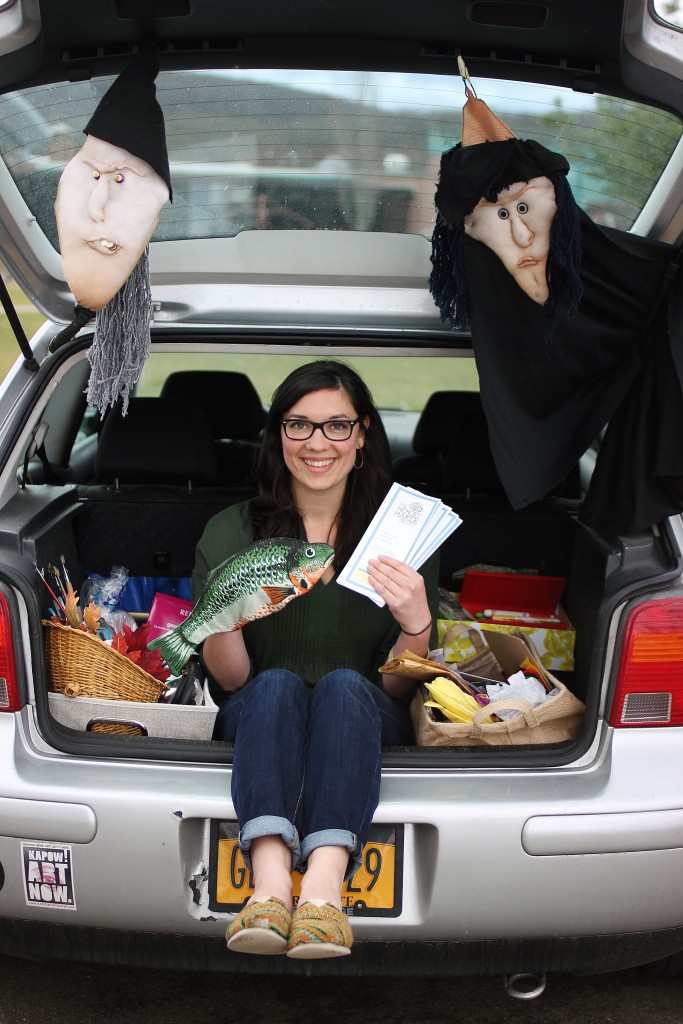
A third of people over 65 years old will experience some form of memory loss. A local nonprofit, founded by a Binghamton University alumni, is using art as a way to help them reconnect with their memories.
The Memory Maker Project aims to exercise the minds of those afflicted. Through facilitating conversations, trips and social interactions, the organization aims to keep participants’ minds active and engaged. Christina Muscatello, the founder of the Memory Maker Project, is a Binghamton native who graduated from BU in 2008 with a degree from the individualized major program.
Muscatello founded the organization in May of 2014 with the help of Kim Evanoski, a local social worker certified to work with people suffering from dementia. As one of only a handful of like-minded organizations in the country, and the only one within 300 miles of Binghamton, the Memory Maker Project hopes to improve quality of life for those with memory loss.
“After a diagnosis of Alzheimer’s or another kind of memory loss, the focus of a person’s life can become the diagnosis and its limitations,” Muscatello said. “The Memory Maker Project uses art and culture to magnify individuals’ abilities, recognizing that people need meaning and joy, regardless of their diagnosis.”
Different activities the organization hosts include painting projects, gallery viewings and interactive plays. Muscatello incorporates techniques she learned in graduate school at Leslie University and while working for ARTZ: Artists for Alzheimer’s in Boston. These methods include asking open-ended questions and engaging participants with a narrative that loops back every few minutes to account for their memory issues.
Dara Riegel, Muscatello’s sister and the president of the Memory Maker Project’s advisory board, said that the “Out and About” events, which bring memory loss participants to different locations like galleries and bookstores, energize and excite them.
“When they came in, they were very quiet … neither talking to each other nor to their care partners,” Reigel said. “Once the program got going, however, I saw firsthand what Christina meant when she said they ‘came alive!’ As she asked them questions about the painting in front of them, they all gave their opinions, talked about old memories, sang songs, discussed their past experiences and generally came alive. The art inspired them, but so did the conversation.”
The Memory Maker Project is sponsored by the Center for Transformative Action, an affiliate of Cornell University. In addition, the project is supported by donors from the Binghamton community, including Christ Church and the Brunelli Gallery in Downtown Binghamton. They supply free space whenever the organization wants to host events or display student artwork.
On campus, the Alpha Delta Phi Literary Society chose the organization for its current philanthropic pursuit, and is looking to raise awareness about the project at BU.
“The privilege of not facing cognitive or physical barriers while accessing the cultural assets of New York’s Southern Tier largely goes unnoticed,” said Claire Petrosino, the philanthropic chair of the society and a junior double-majoring in psychology and human development. “It is crucial to strive for inclusivity when it comes to accessing the art and culture our area has to offer.”
Muscatello said she hopes the project continues to expand, allowing more people facing memory loss to engage with culture and the arts.
“Adults are adults,” she said. “And this is preserving people’s abilities to have an active, meaningful engagement with the world and society.”
Correction: a previous version of this story cited the Memory Maker Project as sponsored by Cornell University. This is incorrect, the center is affiliated with Cornell University. Pipe Dream regrets the error.


